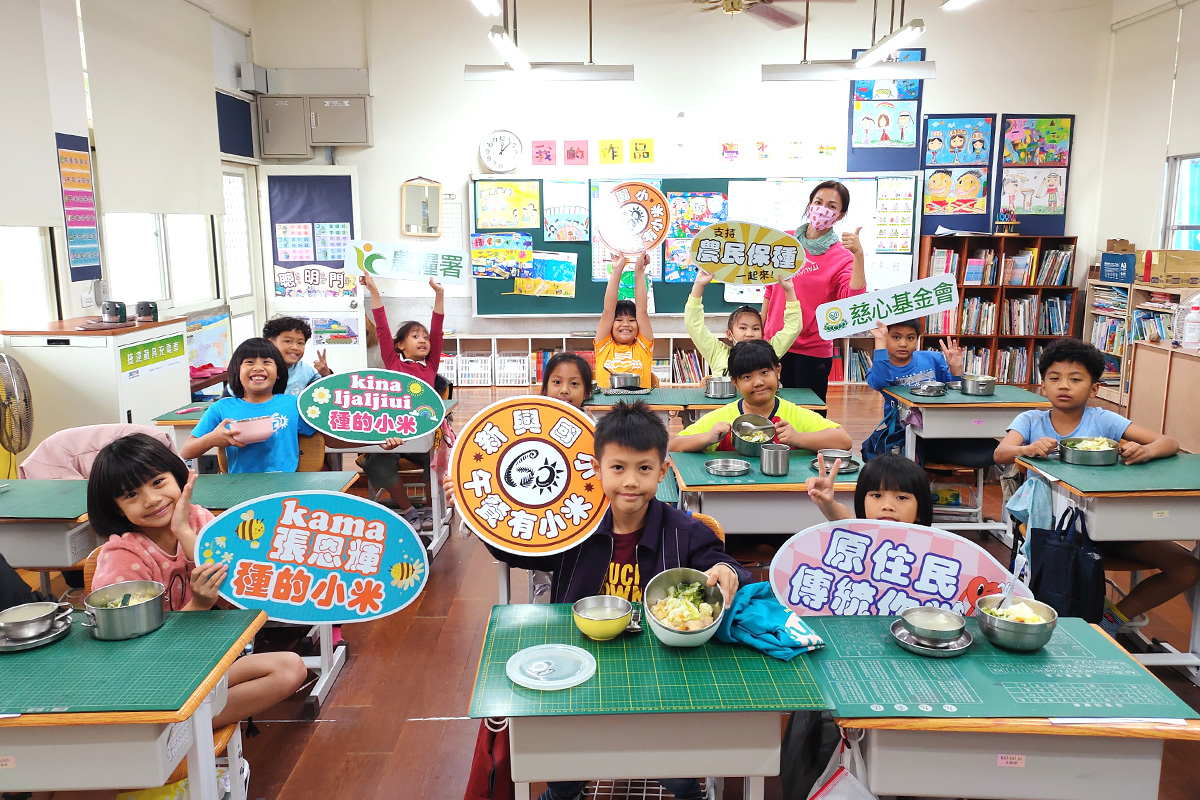
In June 2024, the Agriculture and Food Agency in Taiwan, in collaboration with the Tse-Xin Organic Agriculture Foundation, hosted a presentation on millet harvest, namely, "The Everlasting Seeds on the Hillsides". Representatives from country government, agricultural government agencies, schools, corporations, seed preservation advocates, and restaurant chefs gathered to witness how millet was promoted from farms to schools and communities. For early indigenous tribes in Taiwan, millet was not only a traditional staple food but also a sacred offering in ritual ceremonies. With its rich nutritional value and remarkable resilience—drought tolerance, water efficiency, and adaptability to poor soil—millet has recently been recognized by the United Nations as a key solution to food security in the face of climate change. However, millet is currently facing a crisis of losing the native species.




Between 2015 and 2022, the Tse-Xin Organic Agriculture Foundation conducted in-depth visits to indigenous communities in Hualien and Taitung, uncovering the severe loss of native millet species and the gradual decline of millet-centered lifestyles and culture. Fortunately, a few indigenous people remained steadfast in their commitment to preserve it. This led to collaborations among indigenous farmers, government agencies, academic institutions, and private enterprises to survey native millet species and promote organic and eco-friendly cultivation practices.
In 2023, with support from the Agriculture and Food Agency and corporate sponsorship, Tse-Xin has campaigned four key initiatives:
1.Preservation and Restoration of the Seeds of Native Millet Species
2.Millet in School Nutrition Programs and Cultural Health Stations
3.Farmers as Teachers in Seed Preservation
4.Chefs Introducing Millet to Schools and Cultural Health Stations
The campaign aimed to promote seed preservation from farms to food culture and has made initial progress.

Tse-Xin Organic Agriculture Foundation's Executive Director, Su Murong, expressed gratitude to all involved and called for broader support:
"We are thankful that so many kind-hearted people have come together, allowing these meaningful efforts to continue!"
This initiative has been made possible through the assistance of many parties, namely, the Agriculture and Food Agency, the seedling farm employing their professional techniques to conserve the seeds to ensure the tribe's continued cultivation, the schools, cultural health stations, and corporate sponsors. As a result, indigenous children are becoming familiar with their traditional foods, while farmers pass down their agricultural wisdom and culinary heritage. Additionally, professional chefs introduce innovative millet dishes to spark students’ curiosity. Chen Shu-Zhen, the lunch administrator of Hongye Elementary School, shared her excitement, recalling how millet had long disappeared from school meals, leaving children unfamiliar with it—only tasting it during festivals. Smiling, she remarked:
"On the day millet rice was served, both teachers and students ate more than usual!"


Hualien and Taitung’s indigenous communities inherit rich native crop species, which thrive in their natural habitat; if we could grow these crops as the daily staple food, the indigenous community’s deep-rooted agricultural wisdom would offer vital insights for modern food systems amid the climate crisis. With collective efforts, Tse-Xin wishes that the seeds sown on the hill sides will continue to thrive, bringing hope not just to indigenous communities, but to Taiwan and the world.





 2025 / 05 / 02
2025 / 05 / 02